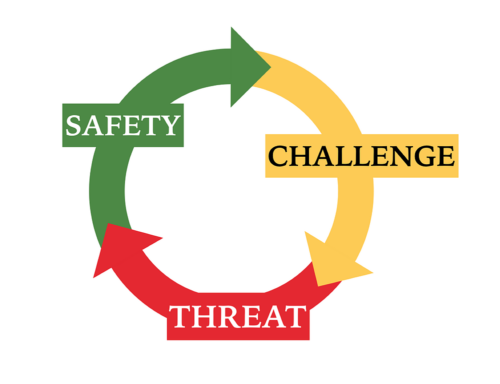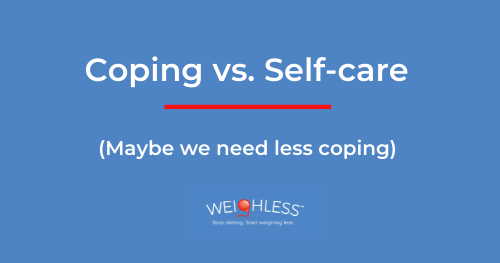Many people find that they can keep their diet and exercise regimen on track perfectly well as long as their life is going smoothly. But as soon as they hit a rocky patch, their meal prep, portion size, evening snacking and exercise time goes haywire.
In other words, when life inevitably gets stressful, their best intentions fall apart.
Enter the…
Transactional Theory of Stress
This model, outlined in Handbook of Behavioral Medicine, suggests that while we unconsciously assess the stressors and demands of an event, they’re not actually the problem.
The real problem is how we appraise each of them and then decide whether we have the resources (grit, determination, motivation or willpower) to meet the problems posed. But these “resources” also include our perceived ability, our previous experience, and our relevant skill level.
So when these stressful times arise, based on your ability to face these problems, you’ll fall into either a Challenge state or a Threat state.
- The Challenge state is where you’ve processed the situation and concluded that yes, you can cope. You’re fully engaged with the task at hand and can employ positive coping strategies to deliver optimum performance.
- The Threat state is where you perceive that you lack the resources to cope with the situation ahead. This often leads you to turn to old behaviours/patterns and abandon anything that doesn’t feel comforting or familiar.
The next time you are faced with a stressful situation, wouldn’t it be nice to have the “resources” on hand to be able to switch into a challenge state rather than a threat state?
That is a big part of what our Weighless graduates experience. Over the year-long program, we give you the tools and mindset to be able to reassure yourself that the problem at hand is a challenge which you can handle… without busting into a pint of Ben and Jerrys.




